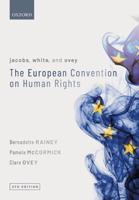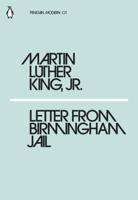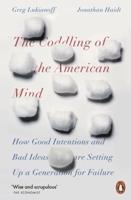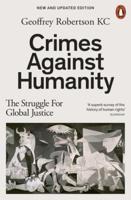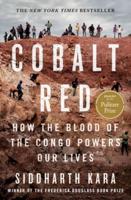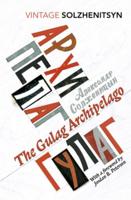Publisher's Synopsis
Murray Bookchin introduces provocative ideas about the nature of community and what it means to be a fully empowered citizen. He believes that the tensions that exists between rural and urban society can be a vital source of human creativity, thereby defining a new, richly imaginative politics which can help us recover the power of the individual, restore the positive values and quality of urban life, and reclaim the ideal of the city as a major creative force in our civilization. What is envisaged is an environmentally oriented politics, a new ecological ethics and a citizenry that will restore the balance between city and country and, ultimately, between humanity and nature.
Murray Bookchin is a pioneer thinker and writer and has been active in the ecology movement for more than thirty years. He is widely regarded as one whose ideas are decades ahead of his time. Professor Emeritus at the School of Environment Studies, Ramapo College and Director Emeritus of the Institute of Social Ecology, he has authored more than a dozen books on urbanism, ecology, technology and philosophy.
Excerpt from the preface:
"The city at its best is an eco-community. Urbanization is not only a social and cultural fact of historic proportions; it is a tremendous ecological fact as well. We must explore modern urbanization and its impact on the natural environment, as well as the changes urbanization has produced in our sensibility towards society and toward the natural world. If ecological thinking is to be relevant to the modern human condition, we need a social ecology of the city.
"This book attempts to lay the groundwork for such a social ecology. It tries to develop a concept of the city in those participatory terms that are uniquely characteristic of all 'ecosystems'. It relates ecology's participatory sensibility to the city in all its forms over the course of history, partly to show that the city was a social eco-community at various times insofar as it fostered diversity, mutualism, and connectedness.
"In applying a participatory sensibility to the city, I have been obliged to take the reader on a voyage into the evolution of the city. What I wish to do is redeem the city, to visualize it not as a threat to the environment but as uniquely human, ethical, and ecological community that often lived in balance with nature and created institutional forms that sharpened human awareness of their sense of natural history."
Reviews:
For Murray Bookchin, the products of urbanization...form "a shapeless blob, a mere chaos of structures, streets, and squares." This observation is important [in view] of a historical account of the rise and fall of the city-state as the arena of citizen participation...Bookchin gives us a useful history and a call for action..The New York Times.
To reverse the city's dehumanization, social thinker Bookchin here advocates an agenda for participatory democracy. The new political culture he envisions is built around citizens' assemblies and decentralized cities...it is significant..- Publisher's Weekly, New York.
Bookchin is the leading ecological thinker of our times. His work ranks alongside Lewis Mumford's monumental works on the culture and history of cities and goes beyond. - Prof. Kent Gerecke, University of Manitoba, editor of City magazine
Table of Contents
Preface
Introduction
CHAPTER ONE Urbanization Against Cities
CHAPTER TWO From Tribe to City
CHAPTER THREE The Creation of Politics
CHAPTER FOUR The Ideal of Citizenship
CHAPTER FIVE Patterns of Civic Freedom
CHAPTER SIX From Politics to Statecraft
CHAPTER SEVEN The Social Ecology of Urbanization
CHAPTER EIGHT The New Municipal Agenda
APPENDIX The Meaning of Confederalism
Notes
Index
1992: 316 pages
Murray Bookchin is a pioneer thinker and writer and has been active in the ecology movement for more than thirty years. He is widely regarded as one whose ideas are decades ahead of his time. Professor Emeritus at the School of Environment Studies, Ramapo College and Director Emeritus of the Institute of Social Ecology, he has authored more than a dozen books on urbanism, ecology, technology and philosophy.
Excerpt from the preface:
"The city at its best is an eco-community. Urbanization is not only a social and cultural fact of historic proportions; it is a tremendous ecological fact as well. We must explore modern urbanization and its impact on the natural environment, as well as the changes urbanization has produced in our sensibility towards society and toward the natural world. If ecological thinking is to be relevant to the modern human condition, we need a social ecology of the city.
"This book attempts to lay the groundwork for such a social ecology. It tries to develop a concept of the city in those participatory terms that are uniquely characteristic of all 'ecosystems'. It relates ecology's participatory sensibility to the city in all its forms over the course of history, partly to show that the city was a social eco-community at various times insofar as it fostered diversity, mutualism, and connectedness.
"In applying a participatory sensibility to the city, I have been obliged to take the reader on a voyage into the evolution of the city. What I wish to do is redeem the city, to visualize it not as a threat to the environment but as uniquely human, ethical, and ecological community that often lived in balance with nature and created institutional forms that sharpened human awareness of their sense of natural history."
Reviews:
For Murray Bookchin, the products of urbanization...form "a shapeless blob, a mere chaos of structures, streets, and squares." This observation is important [in view] of a historical account of the rise and fall of the city-state as the arena of citizen participation...Bookchin gives us a useful history and a call for action..The New York Times.
To reverse the city's dehumanization, social thinker Bookchin here advocates an agenda for participatory democracy. The new political culture he envisions is built around citizens' assemblies and decentralized cities...it is significant..- Publisher's Weekly, New York.
Bookchin is the leading ecological thinker of our times. His work ranks alongside Lewis Mumford's monumental works on the culture and history of cities and goes beyond. - Prof. Kent Gerecke, University of Manitoba, editor of City magazine
Table of Contents
Preface
Introduction
CHAPTER ONE Urbanization Against Cities
CHAPTER TWO From Tribe to City
CHAPTER THREE The Creation of Politics
CHAPTER FOUR The Ideal of Citizenship
CHAPTER FIVE Patterns of Civic Freedom
CHAPTER SIX From Politics to Statecraft
CHAPTER SEVEN The Social Ecology of Urbanization
CHAPTER EIGHT The New Municipal Agenda
APPENDIX The Meaning of Confederalism
Notes
Index
1992: 316 pages

